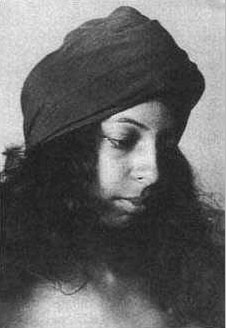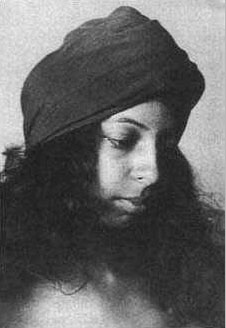
 Angelina Weld Grimké (February 27, 1880 – June 10, 1958) was an American journalist, teacher, playwright and poet who came to prominence during the Harlem Renaissance; she was one of the first African-American women to have a play publicly performed.Angelina Weld Grimké was born in Boston, Massachusetts, in 1880 to a biracial family. Her father, Archibald Grimké, was a lawyer, the second African American to have graduated from Harvard Law School. Her mother, Sarah Stanley, was European American from a Midwestern middle-class family. Grimké’s parents met in Boston, where he had established a law practice.
Angelina Weld Grimké (February 27, 1880 – June 10, 1958) was an American journalist, teacher, playwright and poet who came to prominence during the Harlem Renaissance; she was one of the first African-American women to have a play publicly performed.Angelina Weld Grimké was born in Boston, Massachusetts, in 1880 to a biracial family. Her father, Archibald Grimké, was a lawyer, the second African American to have graduated from Harvard Law School. Her mother, Sarah Stanley, was European American from a Midwestern middle-class family. Grimké’s parents met in Boston, where he had established a law practice.
When Grimké and Sarah Stanley married, they faced strong opposition from her family, due to concerns over race. The marriage did not last very long. Not long after Angelina’s birth, Sarah left Archibald and returned with the infant to the Midwest. After Sarah began a career of her own, she sent Angelina, then seven, back to Massachusetts to live with her father. Angelina Grimké would have little to no contact with her mother after that. Sarah Stanley committed suicide several years later.
In 1902, she began teaching English at the Armstrong Manual Training School. In 1916 she moved to a teaching position at the Dunbar High School, renowned for its academic excellence, where one of her pupils was the future poet and playwright May Miller. During the summers, Grimké frequently took classes at Harvard University, where her father had attended law school.
Around 1913, Grimké was involved in a train crash which left her health in a precarious state. Nevertheless, when her father took ill in 1928, she tended to him until his death in 1930. Afterwards, she left Washington, DC, for New York City, where she settled in Brooklyn and lived a quiet retirement as a semi-recluse.
Grimké wrote essays, short stories and poems which were published in The Crisis, the newspaper of the NAACP, edited by W.E.B. Du Bois; and Opportunity. They were also collected in anthologies of the Harlem Renaissance: The New Negro, Caroling Dusk, and Negro Poets and Their Poems. Her more well-known poems include “The Eyes of My Regret”, “At April”, “Trees” and “The Closing Door”. While living in Washington, DC, she was included among the figures of the Harlem Renaissance, as her work was published in its journals and she became connected to figures in its circle. Some critics place her in the period before the Renaissance. During that time, she counted the poet Georgia Douglas Johnson as one of her friends.
Grimké wrote Rachel – originally titled Blessed Are the Barren – one of the first plays to protest lynching and racial violence. The three-act drama was written for the NAACP, which called for new works to rally public opinion against D. W. Griffith’s recently released film, The Birth of a Nation (1915), which glorified the Ku Klux Klan and portrayed a racist view of blacks and of their role in the American Civil War and Reconstruction in the South. Produced in 1916 in Washington, D.C., and subsequently in New York City, Rachel was performed by an all-black cast. Reaction to the play was good.
The NAACP said of the play: “This is the first attempt to use the stage for race propaganda in order to enlighten the American people relating to the lamentable condition of ten millions of Colored citizens in this free republic.” Rachel portrays the life of an African-American family in the North in the early 20th century. Centered on the family of the title character, each role expresses different responses to the racial discrimination against blacks at the time. The themes of motherhood and the innocence of children are integral aspects of Grimké’s work. Rachel develops as she changes her perceptions of what the role of a mother might be, based on her sense of the importance of a naivete towards the terrible truths of the world around her. A lynching is the spectrum of the play.
The play was published in 1920, but received little attention after its initial productions. In the years since, however, its significance has been recognized as a precursor to the Harlem Renaissance, and one of the first examples of a political and cultural trend to explore the African roots of African Americans
